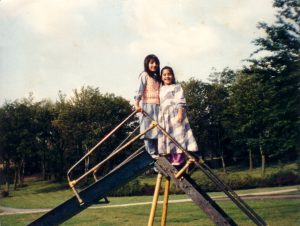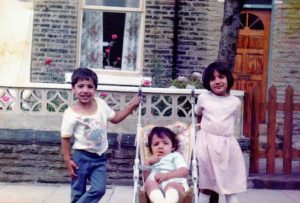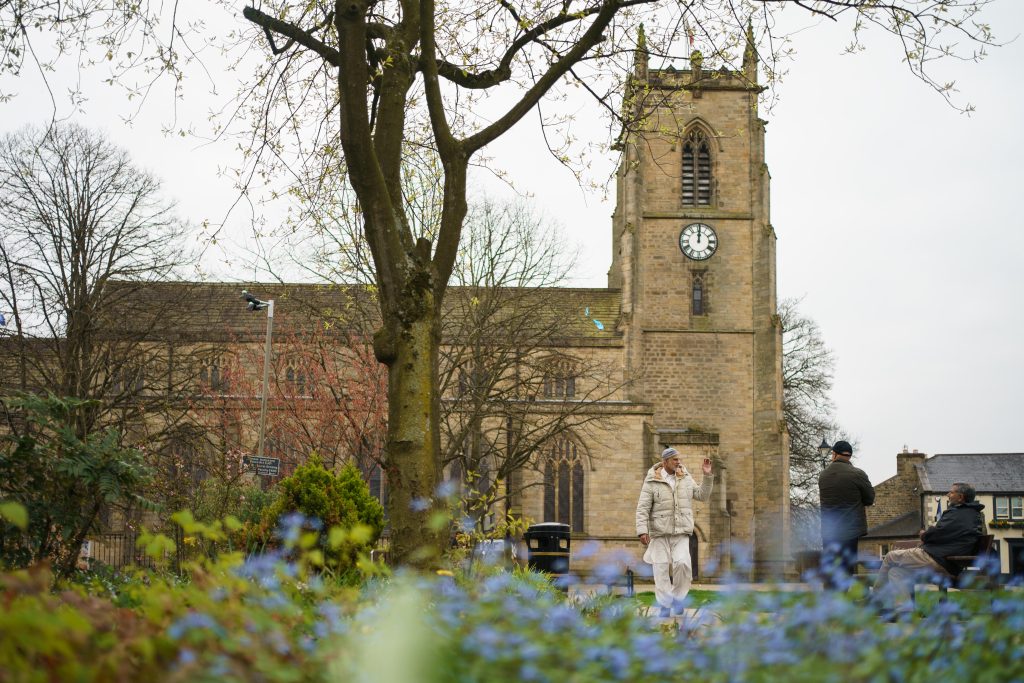South Asian Heritage Month
Written by Noreen, Community Engagement Lead
South Asian Heritage Month is held from 18th July to 17th August each year. The South Asian countries have a rich cultural legacy that influences and integrates with many other cultures and communities around the world, and we have a large diaspora in Bradford.
This year the theme ‘Stories to Tell‘ is all about celebrating the stories that make up this diverse and vibrant community.
Our South Asian colleagues at The Cellar Trust will share their stories over the course of the month. This enables people of South Asian heritage to honour their culture, as well as reclaim their history and identity by sharing their own experiences.
Noreen, our Community Engagement Lead kicks off #StoriesToTell by sharing her experiences of growing up in Bradford with her family following her father’s arrival from Pakistan and the journey of integrating into British society. A moving account with some lovely references to the culture and reference points of the UK in the 80’s and 90’s.

Download a PDF copy of the Blog here
My dad was just a teenager when he arrived in Bradford in the 1970s. With the support of extended family, he found work, learnt the language, and a few years later returned to Pakistan to marry my mum. I was born in the 80s, the second girl in a house of five children. We found ourselves living in the heart of BD3, a home away from home, with the security of an emerging Pakistani population. Rows upon rows of terraced houses and narrow back streets formed a neighbourhood for young South Asian families to find a community in an alien land, and some of my happiest memories are from playing with marbles and riding bikes on those back streets. Mental health wasn’t spoken about in those days, but with a backdrop of economic hardship, racism and a longing to return home, my parents and many like them found support and comfort in others who led similar lives.

I was an 80s child and a 90s teenager. Popular culture and entertainment shaped my childhood and provided a melting pot of Eastern and Western influence. The weekly Bollywood movie, on VHS, chosen from a huge selection at the local video store, provided my mum with much needed entertainment in a language that she understood. It also went a long way towards cementing my own language skills, and I can still quote full scenes from classic 80s Bollywood movies. When that was done, we’d sit down to the weekly episodes of Dallas and Dynasty, providing a glitzy and glamorous escape, a world away from our humble lives. Later, in our new house and growing up with three boisterous brothers, I’d have to endure hours of WWF wrestling. When I managed to get my hands on the remote I’d indulge in an episode of Neighbours or Home and Away, before quickly being trumped by my dad or grandma who preferred a Pakistani drama, again borrowed from the local video store. Seeing the first episode of Goodness Gracious Me on mainstream telly somehow validated my Asian roots and made me think that perhaps my Pakistaniness wasn’t so embarrassing after all. Music was an eclectic mix ranging from Take That and Oasis, to Vital Signs, Nusret Fateh Ali Khan, the Red Hot Chili Peppers and gangster rap! We soaked it all up, a little bit of everything thrown into the mix to shape the growing minds of impressionable young British Pakistani kids.
My clothes were all homemade and my jumpers were knitted by my gran. I was mortified at the thought of starting high school and having to wear a maxi skirt that my mum had stitched herself. I felt a huge sense of accomplishment when I managed to convince my parents to buy me my first pair of jeans, just in time for the year 8 leavers party. Little did I know then that as an adult I’d be longing for opportunities to wear shalwar kameez to celebrate my beautiful heritage and to feel connected to my roots.

1992 was a memorable year for many reasons but the one occasion that stood out was the men’s cricket world cup final: Pakistan vs England, or our homeland vs our new homeland. My father’s unwavering support of the Pakistani team no doubt influenced us all, and their victory that year started our love affair with the sport. We were allowed a day off school that day and the celebrations and rewatching of the final continued for years to come. That remains one of the most joyous memories of childhood – we really saw the Pakistani way of celebrating and felt a connection with our roots like never before!
Living in Bradford and being of South Asian heritage brings a unique sense of community. The way our ancestors lived in Pakistan has continued through our lives here. Strong ties have been maintained with extended family – there were many a trip down to Rochdale to visit our second cousins. They weren’t thought of as second cousins though, they were just our cousins, because in Pakistani culture everyone is your cousin, or your aunty, or your uncle. You treat all elders with the same respect that you would your own blood relatives, whether you’re meeting them for the first time, or you have spent a lifetime with them. Islamic culture brings with it brother and sisterhood, a trust that you can turn to your sister in Islam and have a shared understanding of life. Mental health is supported though family ties, and as someone of South Asian heritage that has blended into the British way of life, mental health conversations are now more open and accepted. Some elders who are the same age as my parents and grandparents are now recognising their own mental health struggles as well as those of their children and grandchildren.
As my own children navigate adolescence, I lament at the loss of their mother tongue and am forever overcome with guilt for not working harder as a parent to pass on my language. As an established British Pakistani community, and with the huge global impact of social media, life feels even more like a big pot of biryani – chuck everything in and hope for the best! As we embrace the growing diversity of Bradford and beyond, I hope that my children will hold onto their dupatta, learn to make a mean nihari, and maybe even sit down one day and watch a Bollywood movie with their mum and dad.
For full details of South Asian Heritage Month please visit southasianheritage.org.uk



